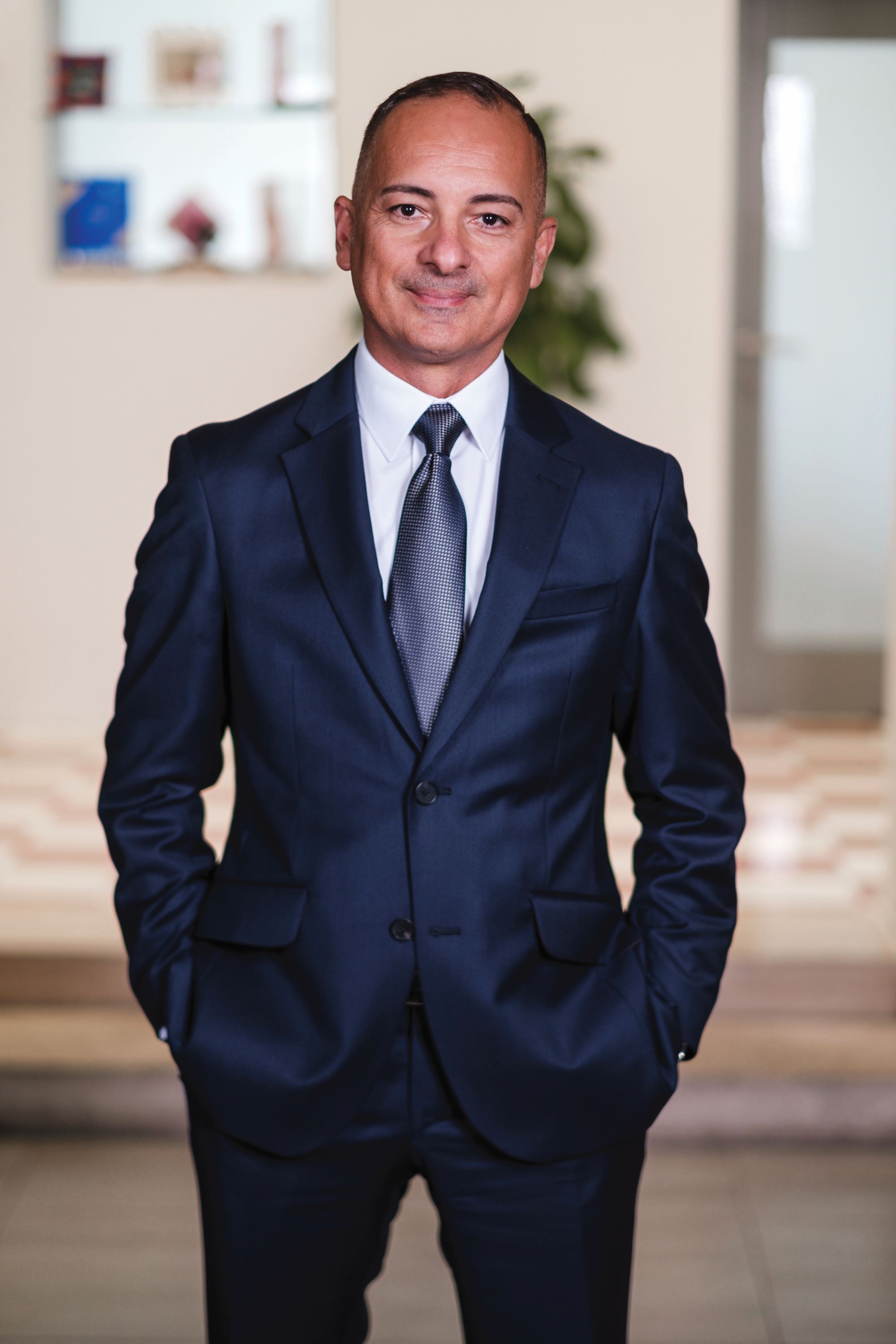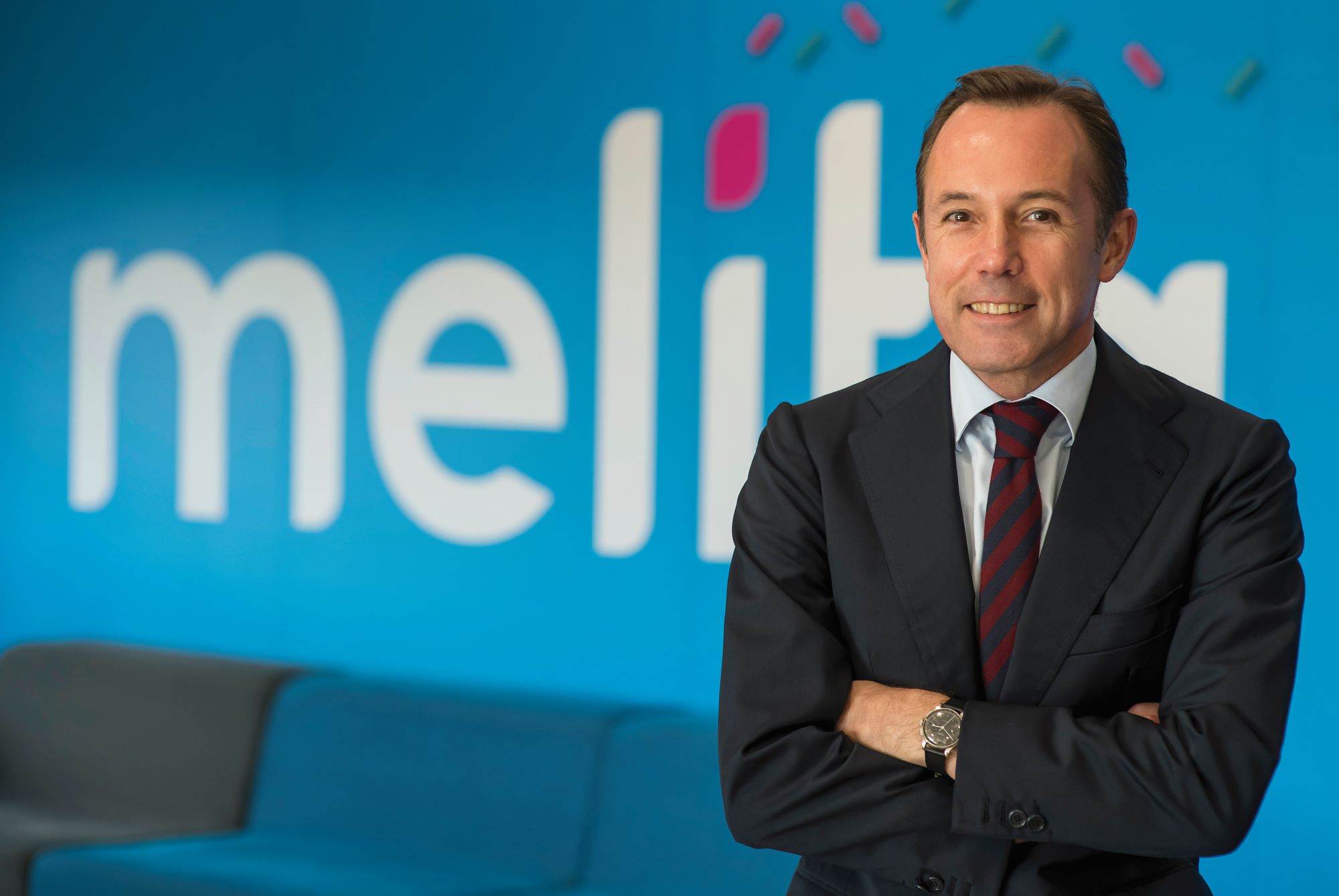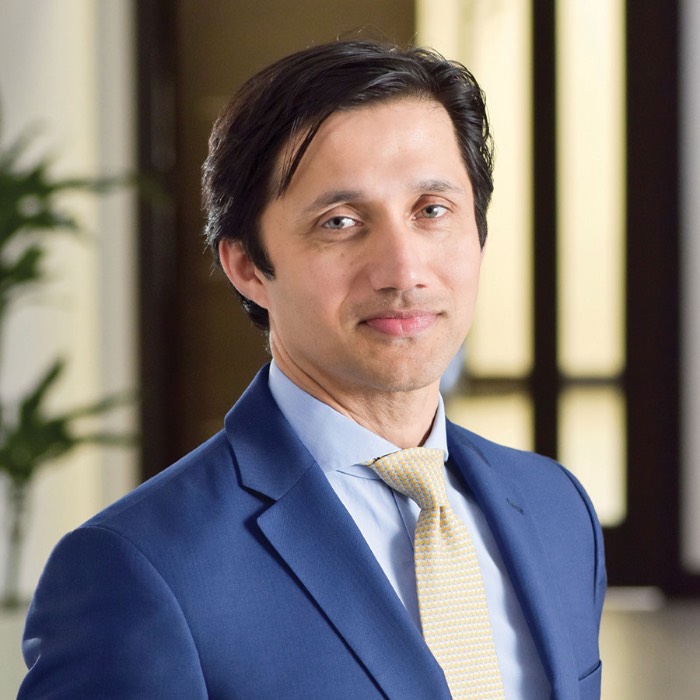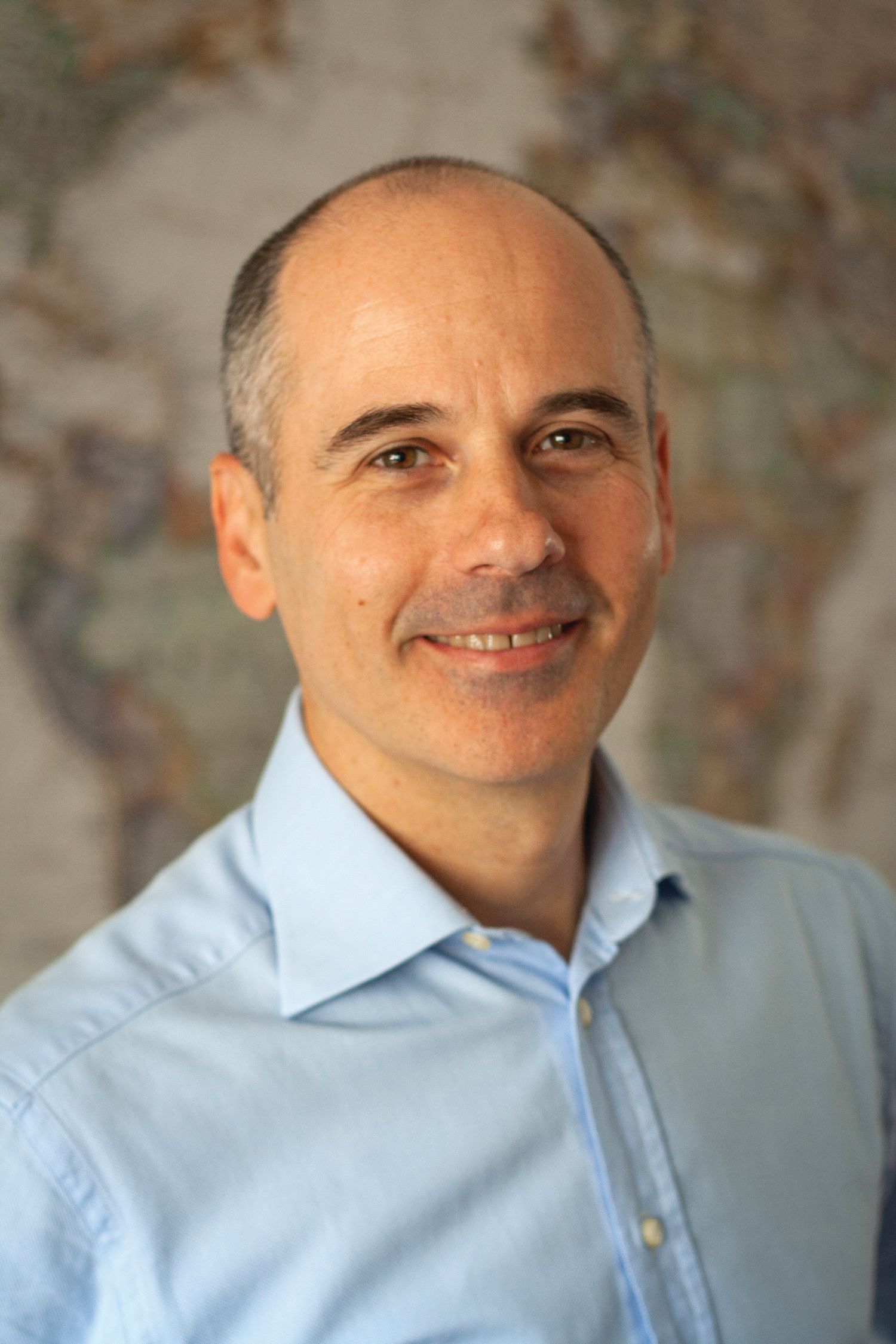“The ‘fifth generation’ of telecommunications systems, or 5G, is seen by Europe as the most critical building block of its ‘digital society’ in the next decade,” explains Jesmond Bugeja, CEO at the Malta Communications Authority (MCA), the National Regulatory Authority tasked with regulating communications services, including fixed and mobile telephony, internet and TV distribution services in Malta.
Broadly speaking, 5G has the potential to impact how we communicate, how we do business and augment our well-being, with the MCA CEO affirming that it promises to be “significantly more” than merely an enhancement of 4G.

Jesmond Bugeja, CEO at the Malta Communications Authority
“5G is the first generation of cellular connectivity, designed with the intent of addressing the vertical industry, including healthcare, automotive, energy, public services and utilities, manufacturing and logistics, and agriculture,” he says, adding that this new generation of cellular connectivity may act as a catalyst for digital transformation, delivering faster, more reliable, ubiquitous hyper-connectivity.
“It is envisioned that 5G and the resulting digital transformation can be an enabler over which Artificial Intelligence, Machine Learning, Virtual Reality and Big Data Analytics can transform all sectors of our economy and society. Specifically, 5G is being identified as one of the pillars of Intelligent Connectivity,” Mr Bugeja continues.
“To fully understand the importance of 5G it is worth remembering how we got here,” says Melita CEO Harald Roesch.
“While 1G allowed us to use mobile phones for voice calls, 2G brought us the possibility of writing short text messages. We could first use our mobile phones to surf the internet thanks to 3G technology, with online user experience subsequently being boosted by 4G and – most recently – 4.5G.
“As such, 5G will be a lot faster – delivering higher data speeds, lower latency and greater network capacity,” he maintains.
For Malta, Mr Roesch continues, our high population density means lots of people using a network at the same time within a relatively small area.
“In the short term, we will all be able to enjoy greater reliability on our mobiles, smoother video streaming and – for the gamers amongst us – more exciting gaming,” he says, adding that 5G will give us the same high speeds and high performance online whether we’re outdoors, connecting to the internet over 5G, or at home over a fixed internet connection.
But this is just the start. “In the medium term, 5G will present consumers with applications to protect themselves and their families, such as augmented reality windscreens in cars, and high-performing home alarm systems and sensors,” the CEO adds, revealing that perhaps the most important area where 5G will bring tangible benefits is healthcare.
“For example, it will facilitate real-time, or quasi real-time remote consultations and even remote operations could potentially be possible, regardless of location,” he says.
Moreover, with the speeds that 5G can generate, Mr Roesch affirms, the Internet of Things (IoT) can reach verticals it has never reached before.
“We will be able to connect industrial solutions to the internet to enhance smoother communication between manufacturing plants and the supply chain, and to grant 24/7 internet access to vehicles, enhancing self-driving and AI-complemented transportation.
5G will lay a solid basis for solutions that will significantly change how we live our lives in the near future, sparking novel digital solutions that we could not have thought about earlier.”
Epic (formerly Vodafone Malta) CEO, Tamas Banyai, explains that 5G supports up to 10 times faster speeds for mobile broadband, which enables 4K (the standard used for commercial digital cinema) media streaming, video analytics, holograms and very high definition video download and upload, as well as the ability to connect a huge number of devices.
“This enables the massive adoption of the Internet of Things, with more than 500 times the number of devices connected on 4G today.”
Giving further examples of how this can be implemented in real terms, he adds, “it will connect millions of critical appliances that other mobile services cannot reach, such as gas or water leak detectors embedded underground, alarms situated deep within buildings or even livestock and electricity lines.”
In 2016, the European Commission published the ‘5G for Europe: An Action Plan’, which outlined a number of actions considered necessary for the introduction of 5G in Europe.

Speaking of the plan, the MCA CEO affirms that it identifies 5G as a game changer, enabling industrial transformations through wireless broadband services provided at gigabit speeds; the support of new types of applications connecting devices and objects; and versatility by way of software virtualisation, allowing innovative business models across multiple sectors.
Locally, he maintains, these transformations have already started on the basis of existing networks and have the potential to be further enhanced through 5G and its application in the coming years.
“The realisation of 5G necessitates investments by operators. These include additional spectrum resources, the roll-out of 5G transmission and network infrastructure, as well as increased investments in high-speed connectivity to connect this infrastructure. Investments are also required in back-end systems to support the advanced services that 5G may enable,” asserts Mr Bugeja.
“The preparations required for a 5G implementation are significant,” says Epic’s CEO, highlighting three main areas which are critical: spectrum, technology (including core networks, radio networks and devices) and cost.
Speaking of the spectrum needed for 5G, Mr Banyai affirms that a number of pioneer spectrum bands have been identified by the EU Commission, with the MCA currently aligning itself to make these bands available to local operators.
From an implementation point of view, the CEO points out that an existing mobile network requires significant upgrades to the core network elements to support higher capacities, speed and interworking with other technologies for seamless interoperability; as well as the redesign and upgrades of all radio base stations, as 5G requires the deployment of additional radio equipment and an additional set of antennas.
“A major challenge to implement 5G locally is the significant effort and cost required to upgrade the existing radio base station sites, both from a structural and an equipment point of view,” he continues, adding that in order to facilitate the successful deployment of a 5G network locally, there needs to be enhanced coordination between the various authorities involved.

Nikhil Patil - CEO of GO plc
On behalf of GO, CEO Nikhil Patil maintains that the company has the groundwork in place thanks to GO’s True-Fibre network, as well as the fact that all of its base stations are already entirely backhauled over fibre.
However, he posits, “a number of pieces of the puzzle need to fall into place, namely spectrum allocations, vendor agreements, and base station upgrades. There also needs to be clearer visibility on the use cases as well as the widespread availability of the customer-side devices that support 5G.”
Melita CEO Harald Roesch agrees that 5G will revolutionise communication and highlights several steps that are necessary for its implementation – the first being the right infrastructure.
“At Melita, we partnered with Ericsson and started rolling out our 5G-ready network in May 2018, reaching nationwide coverage by the end of 2019,” he says, affirming that the company has been using this network to operate its 4.5G mobile services.
“The second step is to test 5G – which Melita is currently doing on a small scale. This trial is primarily designed to test the performance of the Ericsson network and equipment, and its ability to deliver the speeds and capacity needed for 5G in the Maltese environment,” he continues.
Indeed, the MCA has noted that Malta is an ideal location for pilot studies of 5G, going on to publish a lightweight test and trial licensing framework which grants local and foreign companies the licence to carry out trials of innovative wireless systems such as 5G on a non-commercial basis.
Melita has been granted a licence to trial its 5G infrastructure and measure performance in a local context.

Tamas Banyai - CEO of Epic (Formerly Vodafone Malta)
“This trial began at the end of September and is running at the Melita Data Centre next to Madliena Fort, and a limited number of locations in Sliema, St Julian’s and Valletta,” Mr Roesch states.
“One of the advantages of having invested in Ericsson’s network is that Melita is able to transmit 5G using wireless frequencies which have been in use in Malta for many years.
“We recognise that some people have concerns over this new technology; however, using these established frequencies, we are confident that there will be negligible changes in emission levels when compared to existing networks – levels which themselves are a small fraction of a percentage of the 2020 guideline levels set internationally by ICNRIP – the international nongovernmental organisation formally recognised by the WHO,” he continues.
While CEO Nikhil Patil notes that GO is in ongoing discussions with internal and external stakeholders regarding trialling 5G, Epic (at the time Vodafone Malta) went live with a 5G demo last year, conducting the country’s first live holographic call using 5G, featuring a live orchestra and band being joined on stage by two singers in hologram form.
“With this, we demonstrated the ultra-low latency and lightning fast speeds that one can achieve with 5G,” outlines CEO Tamas Banyai, highlighting these as two crucial factors in transmitting the feeds in real time from Ta’ Qali to Luqa and vice versa.
The main objective of the European Commission’s aforementioned 5G Action Plan for Europe was industry deployment of advanced 5G networks as from 2020.
Shedding light on where Malta stands in relation to this objective, the MCA CEO explains that in 2017, the MCA embarked on a five-year work plan outlining actions aimed at facilitating the deployment of 5G networks in Malta.
“In preparing this plan, the MCA considered the relevant EU Regulations and Directives, including the new European Electronic Communications Code, the EU 5G Action Plan and Roadmap and developments at ITU level.
MCA’s active participation in BEREC, the European body representing the independent regulators of Electronic Communications, is also of significant relevance to this plan,” Mr Bugeja maintains.
Whilst upholding principles of technology and service neutrality, the CEO continues, the MCA’s actions aim to facilitate access to the necessary key resources required by operators for the fruition of potential 5G business cases, whilst ensuring compliance with relevant obligations and the prevailing standards and regulations.
“Malta’s telecommunications infrastructure is at the forefront of Europe. Three providers offer 4.5G services nation-wide, with one of them having already invested in 5G-ready infrastructure.
“Such readiness indicates that the market is ready to develop and invest in 5G, and it is likely that extensive roll-outs will take place during 2021,” Mr Bugeja says.
Affirming that any commercial launch of 5G services in Malta is reliant upon the frequencies being assigned, Melita CEO Harald Roesch asserts that once these are in place, and the company has the results of the small-scale trial, it will be in a position to assess the next step. Still, an additional consideration for a commercial launch are the benefits for, and demand from, its customers.
“As 5G networks roll out internationally, 5G devices are becoming more available and more affordable; as people in Malta naturally replace their current devices, we expect that gradually more of our customers will be in a position to benefit from 5G,” he says.
Epic’s CEO is in agreement, maintaining that, apart from the technical complexities and significant cost implications, the successful deployment of 5G requires an ecosystem of 5G compatible phones and devices.
“We have seen some vendors launching 5G-ready devices, but these are still few in comparison to the full market scale. We’re excited about bringing significant improvement to the way Malta connects and we will definitely be there once 5G becomes a commercial reality locally, as we have been with previous technological innovations over the past 30 years,” Mr Banyai concludes.
This feature was first carried in the 2021 edition of Digital Island
Main Image:
